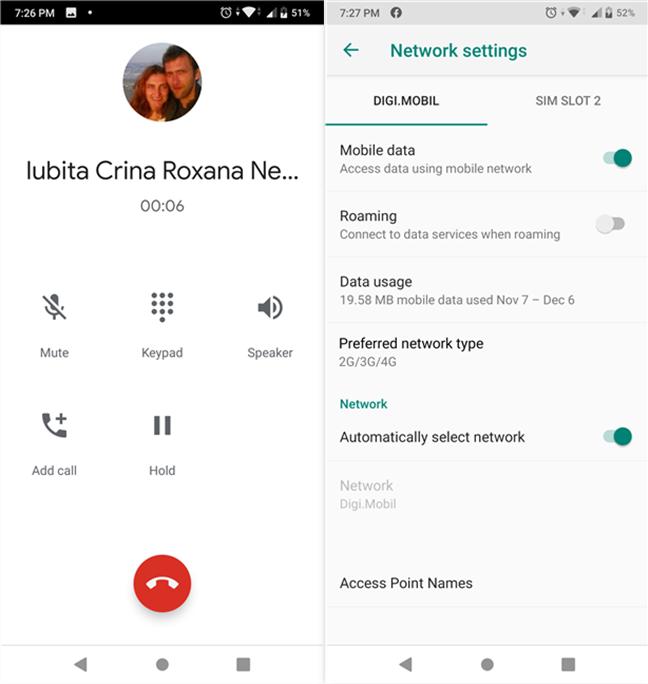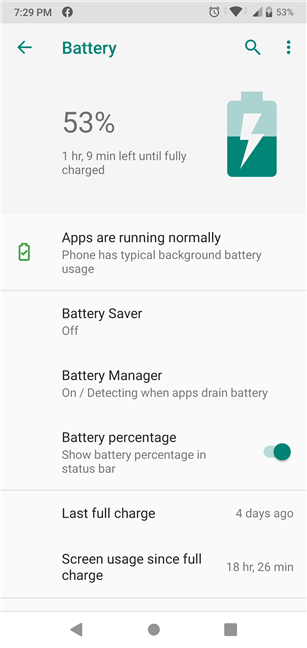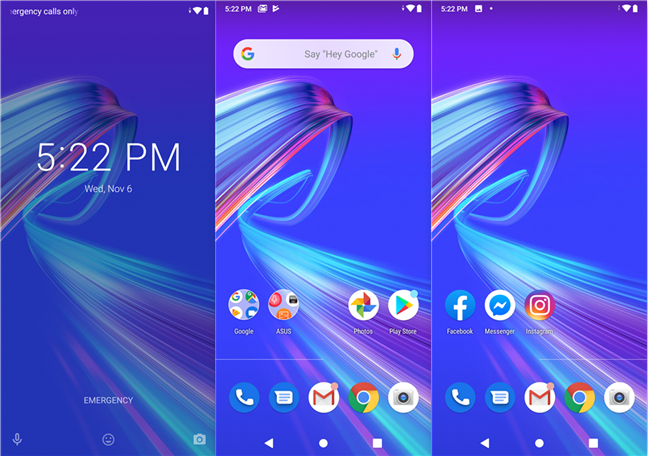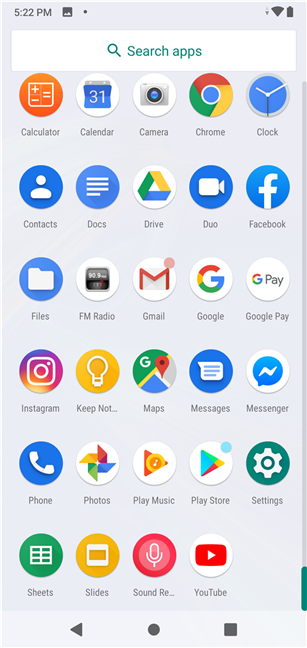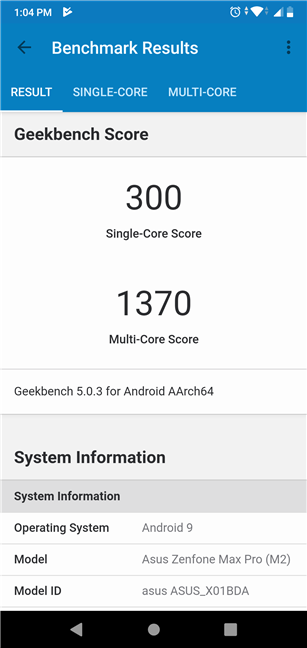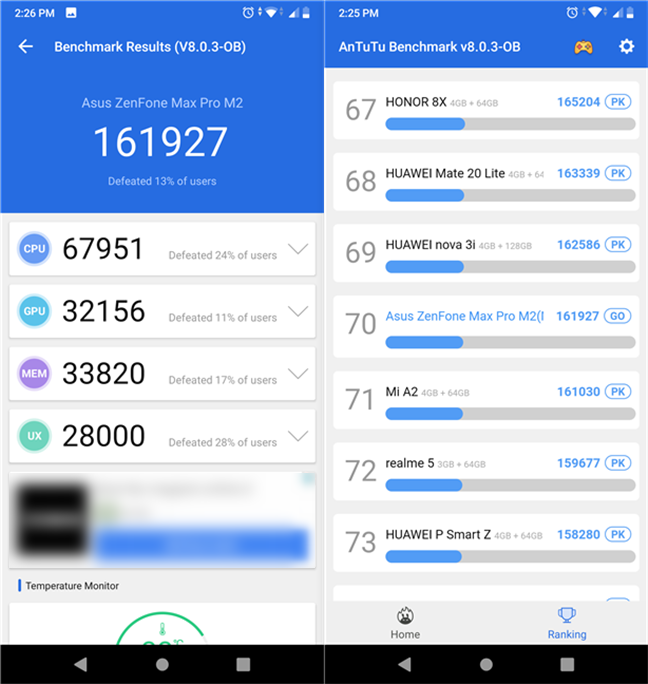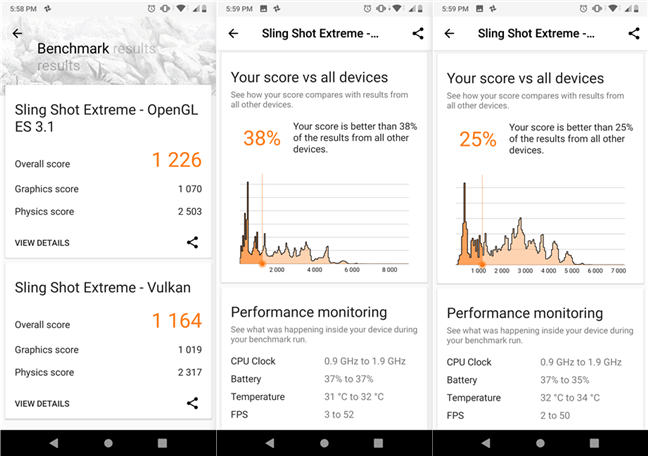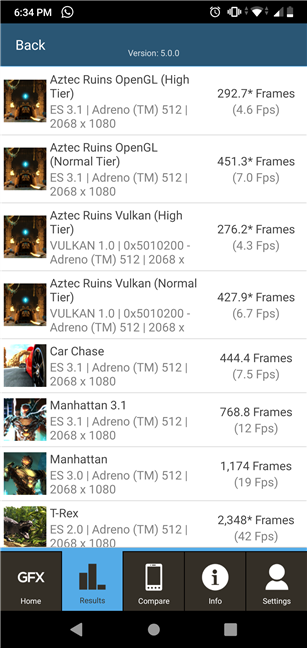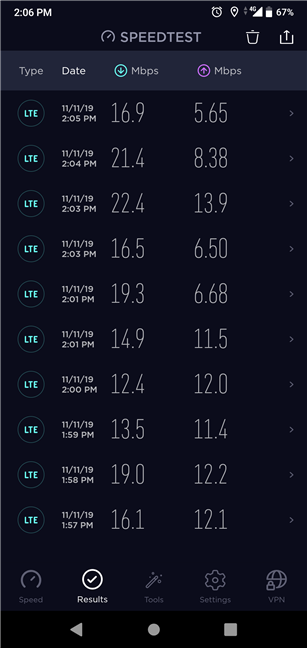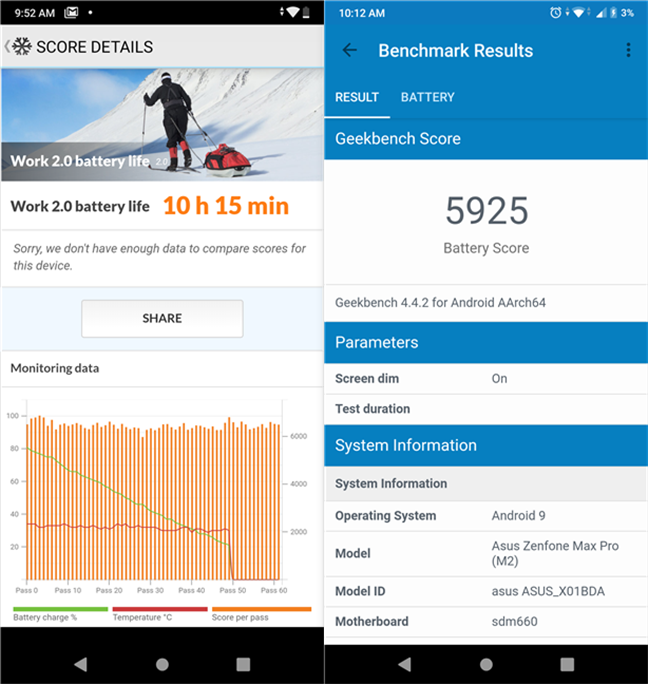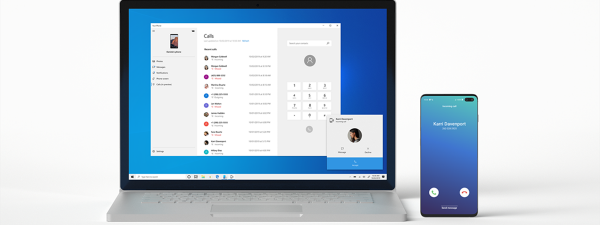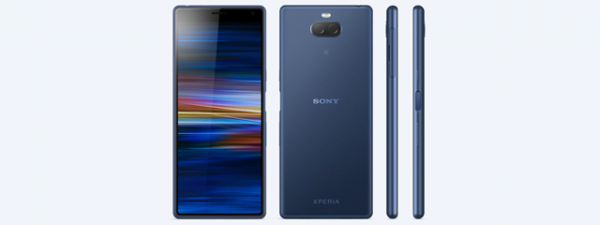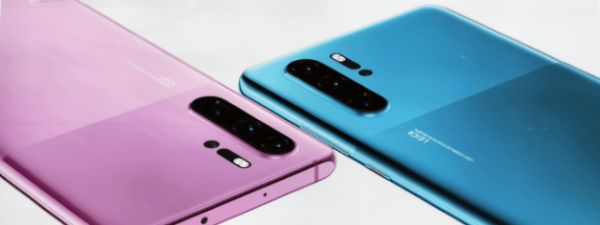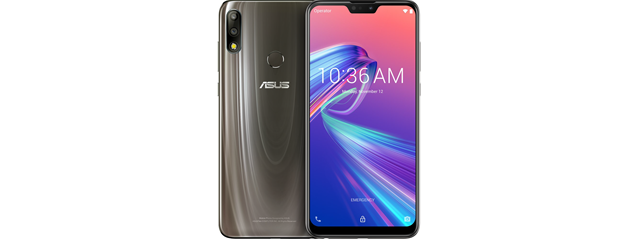
The smartphone experience on the ASUS ZenFone Max Pro (M2)
I used the ASUS ZenFone Max Pro (M2) daily, as my main smartphone, for about two weeks. During this time, I never saw it lag or stutter, so it is safe to say that the Qualcomm SDM 660 chipset and the 6 GB of RAM are more than enough for regular tasks.
All the phone calls that I've made or received on the ASUS ZenFone Max Pro (M2) had excellent quality, and I've encountered no call drops. The signal reception on 4G LTE was good, and the audio was clear, crisp, and with a high volume.
The ASUS ZenFone Max Pro (M2) also fares well at unlocking, as both the face unlock and the fingerprint reader is fast and accurate. Then, I was impressed by the battery which regularly lasted us for two days between charges.
The high-resolution display uses an IPS panel and thus delivers wide viewing angles and excellent color reproduction. The screen's brightness is high, the contrast is sharp, and watching movies is a great experience because of the large screen. The only not-so-good thing about the display is that, unfortunately, the reflective glass does not make it easy to see or read in direct sunlight.
When playing music or videos, the audio quality is excellent. It's especially good when you are using the earphones, but it's also good when routing audio to the loudspeaker. It is very loud, but even so, we didn't hear any distortions.
As for gaming, we did not play too many games on this smartphone, but we did try a few: Marvel Contest of Champions, Asphalt 9: Legends, and Candy Crush Saga. The first two games have high-quality visuals, and, in them, we felt like the number of frames per second was pretty low and noticeable. However, overall, all the games ran well.
Using the ASUS ZenFone Max Pro (M2) smartphone is an enjoyable experience from almost all points of view. The user interface and apps are snappy, the screen looks good, the sound is powerful, and the battery is remarkable. The only things that are not so great are the reflective glass on the screen and the rather weak graphics performance in games.
The camera experience on the ASUS ZenFone Max Pro (M2)
The ASUS ZenFone Max Pro (M2) comes with a dual-camera setup on its back. The primary camera has a 12-megapixel sensor, f/1.8 aperture, and support for PDAF (phase-detection autofocus). The secondary camera has 5 megapixels, f/2.4 aperture, and depth sensing. For low-light, you get single-LED flash, not a dual-LED.
To get an idea of how capable this dual-camera system is, we shot some photos in various lighting conditions, with different subjects. The quality of the photos we've taken outdoors in natural lighting was good, but not excellent; the photos were sharp and detailed, with vivid colors, and proper exposure. However, when the clouds were very bright, the camera setup oversaturated them. In dim lighting, the photos are of poor quality, lacking details. In such conditions, the smartphone also takes a while to shoot, and it does not automatically switch to night mode, so you have to do it manually.
On the front of the smartphone, there's a 13-megapixel selfie camera that takes good portraits, if the lighting conditions are right. Although this camera has a dedicated flash too, it doesn't manage to deliver great results when the surrounding lighting is not good.
In the gallery below, there are some photos shot with the ASUS ZenFone Max Pro (M2), indoors and outdoors, in good and bad lighting conditions. Unfortunately, we couldn't include any panoramic photos, because the standard Camera app doesn't allow you to shoot this type of photos.
The ASUS ZenFone Max Pro (M2) can record videos at a maximum resolution of 4K UHD (3840 x 2160 pixels) and 30 frames per second, as well as in 1080p FHD at 30 fps and 720p HD at 30 fps. Both the main dual-camera setup and the front selfie camera can use 3-axis EIS (Electronic Image Stabilization), but the results are not so great, as you can see in the samples below.
Here is a video sample in which you can see how the camera does when filming moving objects:
Also, here is a more static video to get an idea of how the smartphone handles videos with less movement involved:
The ASUS ZenFone Max Pro (M2) offers decent photo and video quality in good lighting conditions, but doesn't do well in low light.
Android 9 Pie and bundled apps
By default, the ASUS ZenFone Max Pro (M2) smartphone comes with Android 8 Oreo installed. However, in the meantime, ASUS released an update to Android 9 Pie. That's great, and things get even better because the user interface is close to the original from Google.
Furthermore, ASUS bundled only a few additional apps (Calculator, Facebook, FM Radio, Instagram, Messenger, and Sound Recorder), on top of the stock apps already found by default in Android.
ASUS delivers the ASUS ZenFone Max Pro (M2) smartphone with Android 8 Oreo and offers an update to Android 9 Pie. The user interface is clean, and there are no useless apps preinstalled. We are big fans of this approach!
Performance in benchmarks
We started with Geekbench 5, to see how fast the processor found on the ASUS ZenFone Max Pro (M2) is. It got a score of 300 points in the Single-Core tests and 1300 points in the Multi-Core tests. These are decent, but not impressive results. The Single-Core score is similar to that of the old Google Pixel (first generation) and the Samsung Galaxy A8 (2018). The Multi-Core score was much better, similar to the ones achieved by the Nokia 7 Plus and the Samsung Galaxy S8+ (Exynos).
In the AnTuTu Benchmark, the ASUS ZenFone Max Pro (M2) managed to get a score of 161927 points, which means that it's better than 13% of all the smartphones that have been benchmarked by AnTuTu. While not impressive, it's a decent score, much better than what you get from a Samsung Galaxy A8 (2018) and relatively close to that of a Samsung Galaxy A50.
Next, we ran a few gaming benchmarks. We started with 3DMark's Sling Shot Extreme tests. The ASUS ZenFone Max Pro (M2) got 1226 points in Sling Shot Extreme - OpenGL ES 3.1 and 1164 points in Sling Shot Extreme - Vulkan. Both scores are decent but unremarkable, close to those of a Samsung Galaxy A50 or an old Samsung Galaxy S6.
In GFXBench, we also had unimpressive results. We ran the on-screen tests, as they're the ones that evaluate graphics quality on the full resolution of the smartphone's screen. ASUS ZenFone Max Pro (M2) managed to get 42 frames per second in the T-Rex test (for older games), 12 fps in Manhattan 3.1 (less demanding games), and struggled to get 4 to 7 frames per second in the other high-level tests (Car Chase and Aztec Ruins).
ASUS ZenFone Max Pro (M2) supports 4G LTE mobile data connections, so we used Speedtest to see its performance in this area too. The problem is that our mobile operator does not offer the best internet speed. In other areas, the speeds we get could be much higher. However, the results that we got were decent, as you can see in the screenshot below.
Users are also interested in battery life. That's why we ran PCMark's Work 2.0 battery life test and also the Battery test from Geekbench 4. In PCMark, the smartphone kept on going for 10 hours and 15 minutes, while in Geekbench 4, it got a score of 5925 and ran for 10 hours and 16 minutes. These are extraordinary results: ASUS ZenFone Max Pro (M2) can last you for two days of use and even more.
Looking at the benchmarks results, the ASUS ZenFone Max Pro (M2) confirms our subjective impressions. This is an Android smartphone that delivers decent performance and remarkable battery life.
Do you like the ASUS ZenFone Max Pro (M2)?
Although we are gamers and the ASUS ZenFone Max Pro (M2) does not perform well in that regard, we like this smartphone because of its other talents, such as the good-quality screen, generous storage and RAM, and its massive battery. Before closing this review, tell us your thoughts about the ASUS ZenFone Max Pro (M2) in the comments section below.




